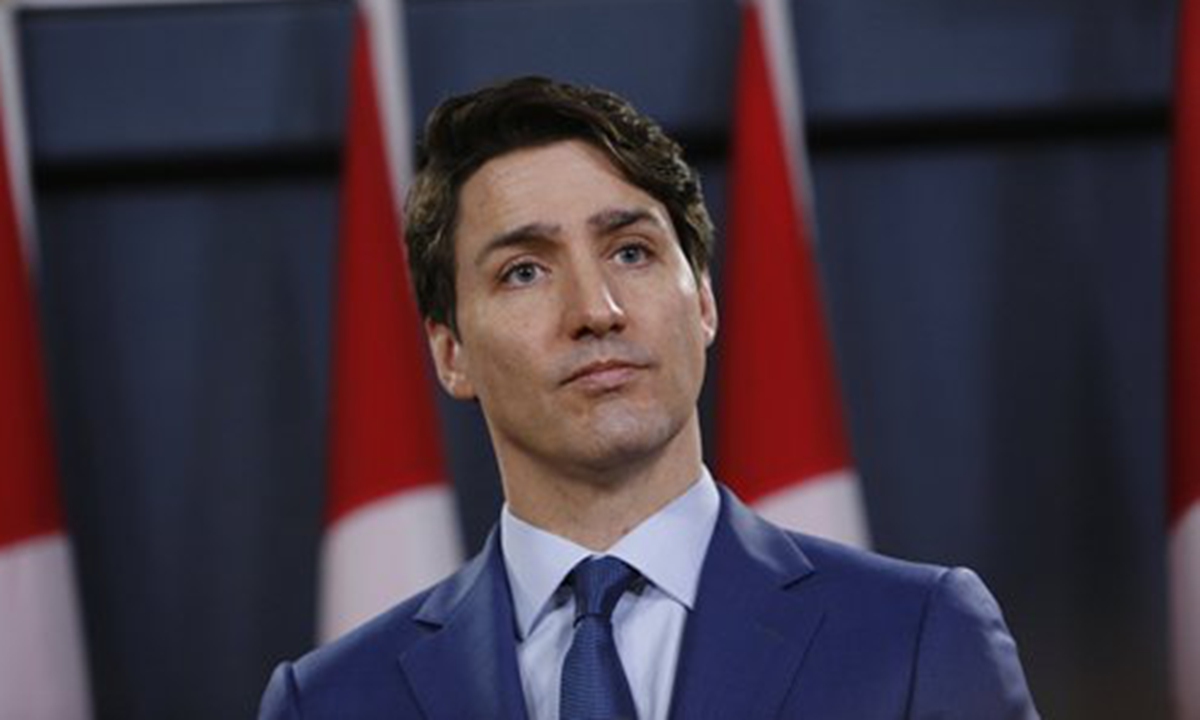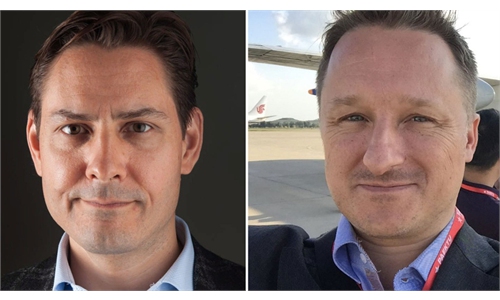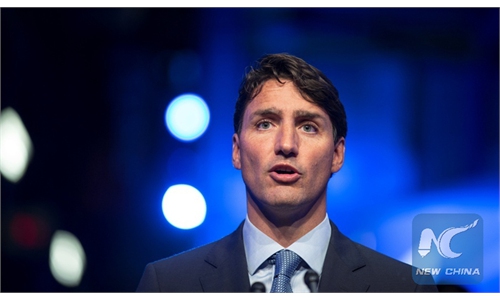
Justin Trudeau Photo: VCG
On January 6, Canadian Prime Minister Justin Trudeau resigned as leader of the Liberal Party and as prime minister. This resignation will take effect as soon as a replacement is chosen. He also confirmed that parliament will be prorogued or suspended until March 24. Prorogation differs from dissolution, which terminates parliament and triggers a general election. Thus, the government remains in power by proroguing without calling for elections. Furthermore, all parliamentary bills and proposals can no longer be considered during this period.
Proroguing allows his party to elect a new leader from among its ranks to preside over the parliament as the new prime minister on March 24. From that point on, the opposition parties, which control the majority of seats in the House of Commons, the lower house of parliament, can cast a no-confidence vote, potentially provoking an election.
The Trudeau administration is now considered one of the most obedient partners of the US in Canada's post-World War II history. This perception was solidified almost overnight following the recent tariff threats from the US president-elect and his tongue-in-cheek suggestion that Canada could become the 51st state of the US to solve its economic woes. Trudeau's weak response has accelerated the Liberals' move to ditch him.
Much of the media and many politicians are understandably focused on Trudeau's legacy after a decade in power. However, few are sincerely dedicated to addressing the fundamental concerns of Canadians, particularly the economy. Regarding the issue of economic woes, the mainstream media or political parties in Parliament have never examined one of its leading causes: increased military spending.
According to Canadian peace activist and academic Tamara Lorincz, reaching the NATO's target of two percent of GDP for defense spending will mean "more guns and much less butter." During the decade-long Trudeau mandate, Canada's military spending has increased by almost 100 percent, rising from around 20 billion Canadian dollars in 2014 to 41 billion in the 2024 fiscal year. What has the Trudeau legacy of closely following US' needs brought to Canada? More guns and less butter.
The Canadian parliament currently lacks a political force ready to stand up to the incoming Donald Trump administration. Thus, the recurring question is: Is there a need for an independent foreign policy? What are the options? While maintaining ties with the US, what Canada should do is look beyond North America to the new multipolar world developing before our eyes.
Naturally, this brings us to China, a country that is leading this new multipolar global reconfiguration. While Canada cannot significantly reduce its economic ties with the US, it can enhance its financial, trade and tourism relations with China. Unfortunately, Justin Trudeau has essentially betrayed his father Pierre Trudeau's Liberal Party legacy regarding China.
Whoever becomes the next Canadian leader will have an opportunity to salvage the China-Canada legacy of friendly relations. Further engagement with the Asian giant in trade, educational exchanges and tourism would bring enormous economic, academic and social benefits to Canadians.
The author is a Canadian author and journalist. opinion@globaltimes.com.cn



